The Mississippi Parole Board can deny parole to people in prison if its members consider a judge’s sentence too low, Meridian-native Julia Monteele Norman told the Mississippi Senate Corrections Committee during her confirmation hearing on Feb. 13. She is the most recent addition to the board at a time when Mississippi’s incarceration rates are rising even as parole rates have plummeted.
Gov. Tate Reeves appointed Norman to the board for a term that began on July 15, 2022, and the Senate confirmed her to the position one week after the Senate committee meeting. According to Norman’s Linkedin profile, she was in charge of government affairs for the City of Meridian from 2018 until her recent appointment. She was an insurance agent for nine years before then.
At the Feb. 13 confirmation hearing, Senate Corrections Committee Vice Chairman Daniel H. Sparks, R-Belmont, expressed concerns about what he called the “troubling” increase in people appearing before the parole board and getting denied.
“When you guys look at a case history, it’s concerning for me as an attorney that we don’t know what agreements were made with district attorneys, we don’t know what participation maybe the person had that kind of reduced the sentence or things of that nature, but when you see variations on a crime versus a sentence, do you factor that in or are you just trying to simply call balls and strikes and look and see, have they behaved well while in custody and have they met the requirements?” Sparks asked.
“Absolutely, time served for the crime is something that we consider,” Norman replied. “Insufficient time is an option that we can choose to deny parole. If it’s a violent crime and you got a short sentence, this parole board may like to see you finish that sentence off, so it varies; there are so many variables it’s hard to pontificate specifically on it.”
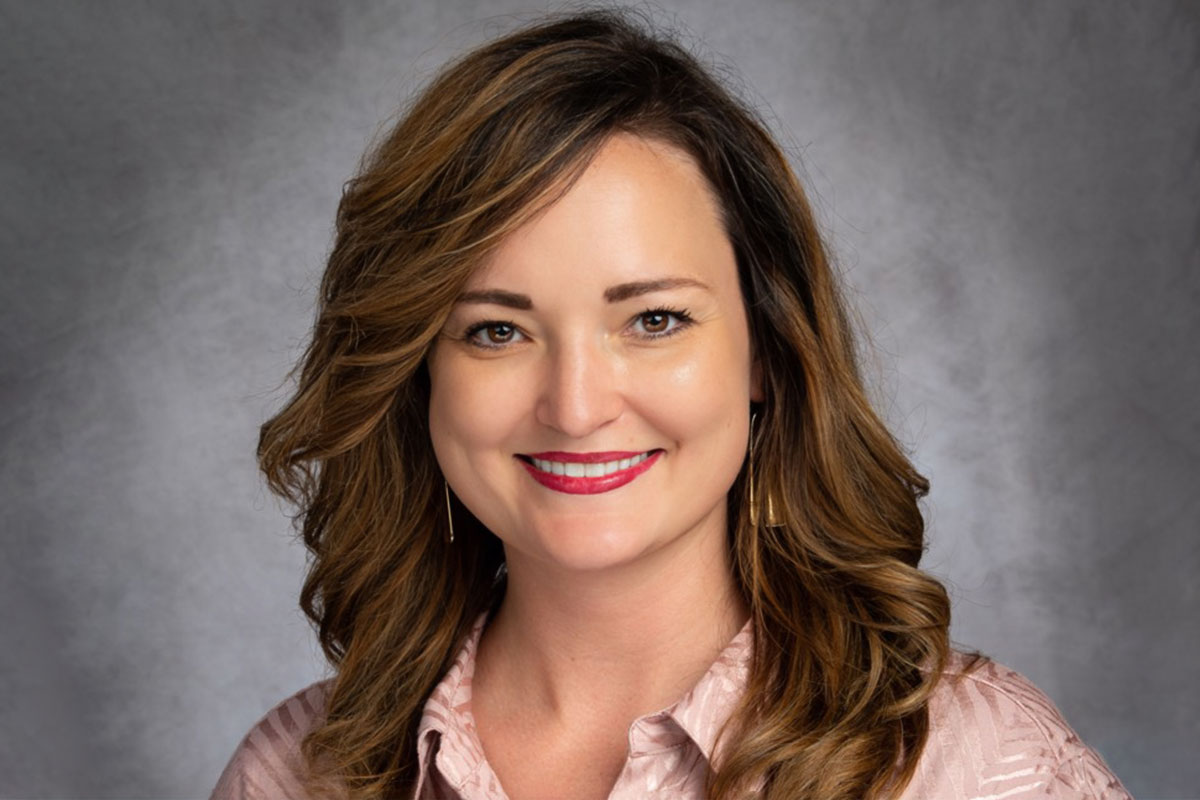
Sparks said Norman’s answer was unsettling.
“It’s concerning for me as an attorney that we don’t know what agreements were made with district attorneys, we don’t know what participation maybe the person had that kind of reduced the sentence or things of that nature,” Sparks said.
The parole board invites judges and district attorneys to weigh in on the board’s decisions, Norman said.
“The judges and DAs, they all receive a list of offenders that are going to come before us. I wish that more of them would respond to those requests,” she said. “That would be extremely helpful to us because many times, as you stated, they know much more than we do about this offender.”
With Norman’s appointment, Reeves has now replaced all five members with his own appointees since taking office in 2020. Norman is the only woman on the board, while Marlow Stewart from Terry is the only Black member. The other three members are white, including the Reeves-appointed chairman, Jeffery Belk of Vancleave, James Cooper of Brandon and Anthony Smith of Poplarville. MDOC statistics show that 59% of Mississippi prisoners are Black.
After Decline, Incarceration Rates On The Rise
In March 2013, Mississippi had as many as 22,281 inmates behind bars. By March 2022, that number had dipped to 16,701.
But the prison population is on the rise again, as the Corrections and Criminal Justice Oversight Task Force noted in its 2022 final report in January. By March 1, 2023, the prison population was 19,481—an increase of 2,780 in a single year. During the same period, the parolee population fell from 9,493 in 2022 to 7,493 in 2023. MDOC has a 22,051-bed capacity prison system.
The percentage of Mississippian inmates incarcerated for drug offenses and other non-violent crimes increased from 34% to 41% between 2022 and 2023. The parole-board-grant rate has also plummeted from a height of 83% in October 2019 to just 37.6% on average in 2022.
“The data further shows that while admissions are stable, the number of admissions from revocation again exceed admissions from new crimes” that parolees commit, the January report says. “This may be driven by persistently high revocations to prison for technical violations from a potential failure to utilize the Technical Violation Centers.”
Technical violation centers are located in the three state prisons: Central Mississippi Correctional Facility, Mississippi State Penitentiary and South Mississippi Correctional Institution. They address the root causes of an offender’s violation, the Mississippi Department of Corrections says on its website.
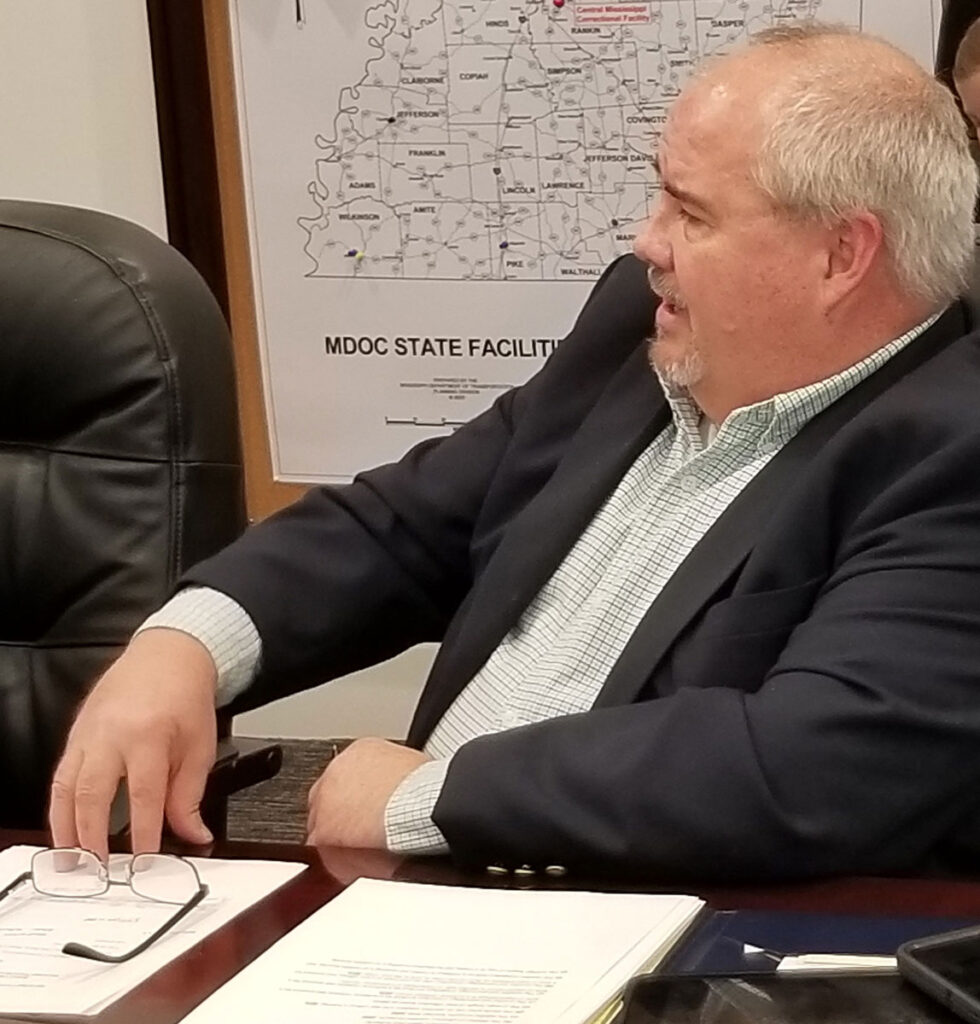
This practice of high revocations based on technical violations “appears to be inconsistent with the policy directives of the Legislature and is contributing to the increase in the prison population without a demonstrable public safety improvement,” the report added.
The report provides information on parole revocations showing that between the third quarter of 2021 and the second quarter of 2022, the number of revocations jumped from 365 to 596. Out of the 1,953 former inmates with revoked parole, only 134 (7.3%) suffered parole revocation because of new crimes; the remaining 1,819 came back to prison because of technical violations of parole terms, not new crimes. The number of parolees ranged from about 8,000 to 9,000 during that time.
The task force’s report recommended “legislation to address housing and substance use disorders issues facing returning persons through transitional (reentry/recovery) housing.”
“More than 9,000 offenders leave state prisons each year, but Mississippi has no system-wide reentry program and a total of just 100 beds in three transitional reentry centers across the state,” the report said. “After spending years behind bars, returning persons may lack the skills necessary to acquire and maintain housing on their own. It is, therefore, necessary that housing preparedness be incorporated into MDOC’s reentry programming both in correctional facilities and technical violation centers.
“The housing needs of offenders reentering their communities will vary. Some will need permanent supportive housing, but most will need far more limited assistance which may include short-term rental assistance, and some will need mid-level assistance consistent with transitional housing.”
The MDOC website shows that the state has the capacity to hold 58 people in the state’s five transitional housing locations, however, only one person housed at the Rankin County location was in any of them as of March 16. The other four transitional housing locations were empty.
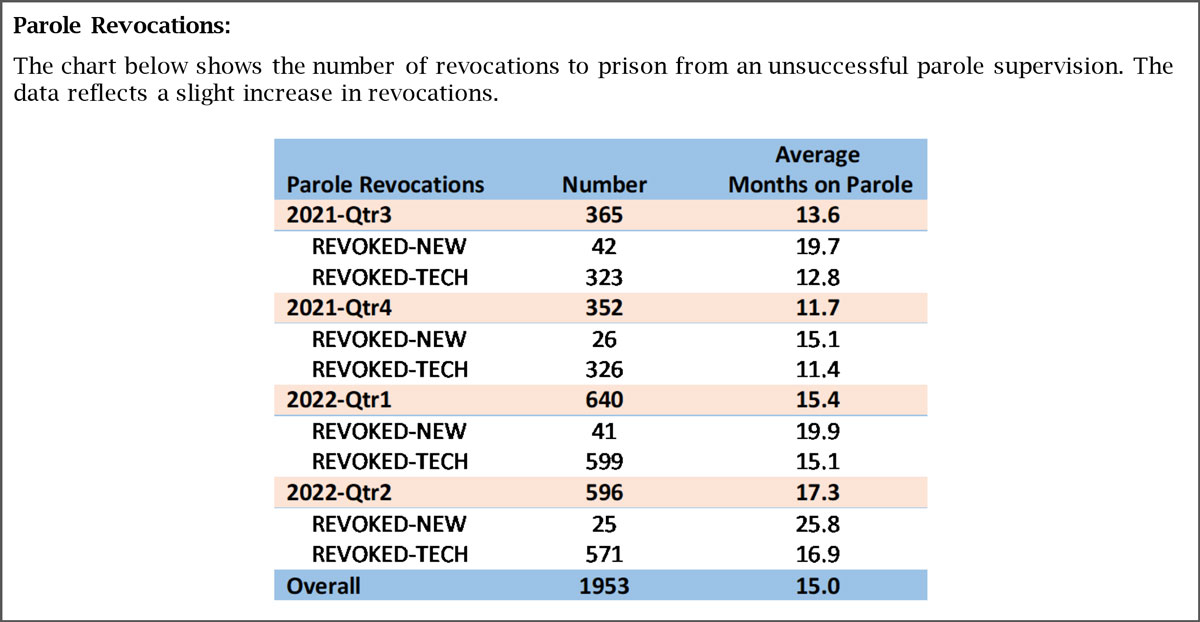
Parole board members told the task force that they deny many offenders parole and send them back “to complete treatment and programming deemed necessary for successful reentry.”
“These nonviolent offenders must then return to the Board for second and subsequent hearings creating inefficiencies and delays,” the report said.
The task force’s recommendation includes getting an “achievable” “case plan for parole-eligible inmates upon entering prison. Only if an inmate’s victim requests a hearing or an inmate did not meet with case plan requirements or behavioral benchmarks would such a person appear before the parole board.
‘We Were Getting A lot of Complaints About the Caseworkers’
Mississippi Center for Re-entry Founder Cynetra Freeman and members of her team met with the Parole Board for dinner about 10 days before Norman’s confirmation hearing.
The organization shared pictures of the dinner on Twitter.
“We took the entire parole board to lunch and now we have the inside knowledge on how to advocate for successful parole for our clients. #secondchances,” the organization said in a tweet on Feb. 2.

Since October 2022, the organization has successfully advocated for the parole of about 50 inmates, Freeman told the Mississippi Free Press in an interview on Feb. 14. She touted a “100% success rate.”
The inmates contact the reentry organization through a newsletter it sends to MDOC facilities.
“And then a lot of their families, they follow us on Facebook, Twitter, and their families will reach out to us about helping them get their loved one parole or helping them create a parole packet,” Freeman explained.
She said she met with the parole board to ensure that the organization continues to have success as it prepares documents for those who are parole eligible.
“The parole board stated that if they don’t have an approved address in the system as well as their case plan done by their caseworker at the MDOC facility, that’s an automatic (set back) for a minimum of six months until they get that together,” she said on information she garnered form the dinner. “And we were getting a lot of complaints about the caseworkers who weren’t meeting with the people, they’re not doing the case plan.”
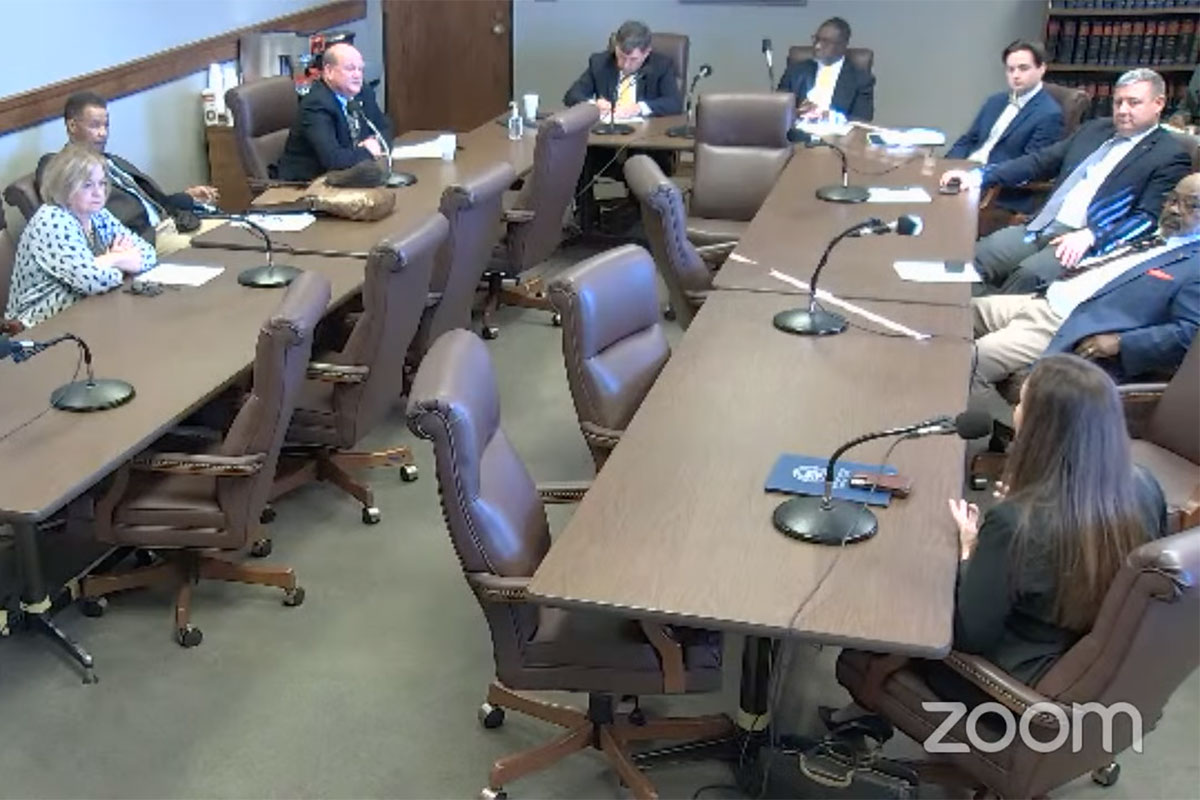
A case plan is a series of questions the case worker asks a potential parolee, including about their after-release plan to work or go to school, Freeman told the Mississippi Free Press. She said that hearing about caseworkers not preparing case plans for the inmates became a call to action for the organization to step into that gap.
“So it’s like, OK, that’s a burden on us because that’s another reason why individuals are not being paroled out,” Freeman said. “Obviously, the parole board is the one that’s getting blamed for it, but it’s really not on them, if that makes sense. So we understand they have their stipulations, but our whole goal is we’re trying to get families home, we’re trying to get families reunited, we’re trying to get people home.”
The Mississippi Department of Corrections’ website notes that an offender’s release “early to parole is within the complete discretion of the Mississippi State Parole Board.” The Mississippi Free Press asked the agency for comment last week but did not get a response.
Freeman said her organization’s members and the parole board members discussed parole denials based on sentence length during their Feb. 2 dinner.
“(If) they feel like the judge gave you X amount of years, but they feel like you haven’t served enough time, then they would deny that individual, and then they would push them back for however many years they feel will relate to the punishment for that crime. What are we doing about our numbers if we continue to do that and we continue to push people back and offer them a second chance?” she said. “We’re going to be filled to capacity. We’re not going to have any beds.”
We took the entire parole board to lunch and now we have the inside knowledge on how to advocate for successful parole for our clients. #secondchances pic.twitter.com/aDjJkZAr2C
— Mississippi Center for Re-Entry (@msreentry) February 2, 2023
World Population Review shows that Mississippi has the highest incarceration rate in the nation.
“And what one of the parole board members was saying is that he’s harsher on a person who sold drugs because the drugs can land in the hands of one of his grandchildren,” Freeman said. “I don’t think that if someone has a three-year sentence and they come off of parole in, let’s say, three or six months, that you push them back for three years, basically doing day-for-day. I think everyone deserves a second chance.” (“Day-for-day” means the inmate stays in prison for the full sentence.)
The Mississippi parole board statute requires that, once the board denies an application for parole, it must review the case within three years.
‘Recidivism Rates Prove We Were Not Successful’
Multiple bills the Legislature passed into law in recent years, including H.B. 585 in 2014 and S.B. 2795 in 2021, already required case plan creation, the task force said in its report. A caseworker must create such plans within 90 days of an inmate’s admission.
The law says that the case plan must include programming and treatment requirements based on the results of a risk and needs assessment, any programming or treatment requirements contained in the sentencing order and general behavior requirements in accordance with the rules and policies of the department. The law also requires the caseworker to notify the inmate of their parole eligibility date within 90 days of admission.
“At the time a parole-eligible inmate receives the case plan, the department shall send the case plan to the Parole Board for approval,” the law says.
The task force report, however, said MDOC and the parole board did not adopt a process to fulfill those provisions of the law but “have indicated they are developing the process with planned implementation by April 2023.”
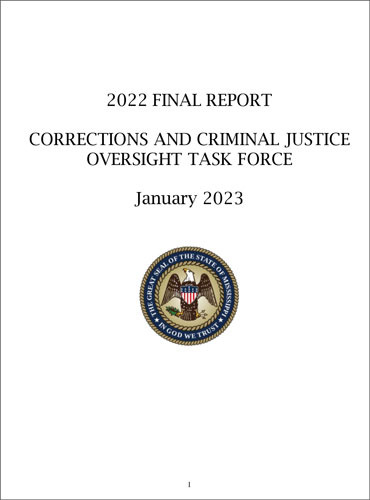
Sen. Sparks asked Norman about case plans on Feb. 13, 2023.
“Can you speak to two things? One is how you address your work electronic databases, but we’re told everyone’s given a case plan at the beginning that sets the expectations that the offender is supposed to meet. Do you have any knowledge of that? And then second, presumptive parole—(what is) your position as it relates to that issue?”
Presumptive parole is the concept the task force referred to when it said those who meet the requirement of the case plan do not have to appear before the parole board except under certain conditions.
“The case plan, that is something that the parole board is not currently active in or participating in,” Norman replied. “My understanding is that they receive those from MDOC, and the case plans go hand-in-hand with presumptive parole. Right now, we receive offenders that are stamped as presumptive parole. If I’m being open, I don’t think everybody completely understands how presumptive parole is … and how it works. I think that it would be great for us to have a true presumptive parole plan.”
“The issue that the parole board has is that, until we work out exactly what is presumptive parole and how offenders qualify for it, we can’t provide it because we consistently receive offenders stamped with presumptive parole that I don’t believe that anyone in this room would parole, and that’s why it’s just a process that we cannot currently depend on,” she added.
The parole grant rate in January was 60%, Norman told the Senate Corrections Committee. She explained that the new board approved fewer people than before because of recidivism fears.
“I will say that something that the Parole Board needs is parole-eligible people, and that is not necessarily that they’re eligible by law, but that they have done the things that they need to do to set them up for success,” she said.
“Now, I think that the previous parole board, maybe, I don’t want to guess at some of the things that they were doing, but the recidivism rates prove that we were not being successful in paroling people and them not returning to the Mississippi Department of Corrections, which should be the goal for our role and everyone at the Mississippi Department of Corrections.”










